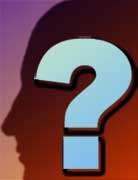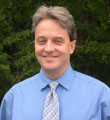Know Thyself—The Ultimate Search
by Kevin J. Todeschi
 I recently had the opportunity to speak with a group of more than 20 young adults between the ages of 18 and 30 about their involvement with the Edgar Cayce information and their hopes for the future—both personally and for the Cayce organizations. One of the things that kept being repeated by the group was the fact that programs exploring the Cayce work and group activities involving that information had been instrumental in enabling many of these young people to come to know themselves. This same concept is at the heart of the Cayce readings on soul growth and personal transformation.
I recently had the opportunity to speak with a group of more than 20 young adults between the ages of 18 and 30 about their involvement with the Edgar Cayce information and their hopes for the future—both personally and for the Cayce organizations. One of the things that kept being repeated by the group was the fact that programs exploring the Cayce work and group activities involving that information had been instrumental in enabling many of these young people to come to know themselves. This same concept is at the heart of the Cayce readings on soul growth and personal transformation.
Historically, the phrase "know thyself" was immortalized by the Greeks at Delphi's Temple of Apollo. Written as an inscription over the entrance to the temple, visitors from throughout the known world came to Delphi seeking the wisdom of the god Apollo. This search to know one's self is often mirrored in ancient stories, fables and fairy tales that seek insights to the very human question, "Who am I?"
The Cayce readings suggest that one of the best ways to answer this question is through an exploration of the subconscious mind—looking at dreams, practicing meditation, dedicating one's self to prayer, and using the God-given talent of intuition. Rather than being an exercise in egotism, Cayce's rationale was as follows: "When one understands self, and self's relation to its Maker, the duty to its neighbor, its own duty to self, it cannot, it will not be false to man, or to its Maker." (Reading 3744-5)
Coming to know one's self was of such importance, Cayce told a small group of individuals involved in the study of personal spirituality that it was actually the second lesson (after cooperation) every individual should undertake for their own soul development (Reading 262-2). One reading summed it up simply, as follows: "Know thyself if ye would know thy God, if ye would be of a service to thy brother." (Reading 1256-1)
Perhaps one of the greatest challenges in coming to know one's self is that too frequently we associate the self with our human weaknesses and frailties rather than our spiritual heritage. However, it is important to remember that we are not physical bodies with souls but are rather souls, children of the Creator, who are gaining experience in the material world. The soul is that which is made in the image of our Maker; that which is destined to be a companion with the Creator. As we apply spiritual principles in our lives and in our relationships with one another, we come to an understanding of our true selves as well as our relationship with one another and our true relationship with God. This is what enables the inner self to be expressed in the material world. This is what enables each and every one of us to come to know ourselves.
Perhaps the time is now to take a new look at who we really are, and what it is we should be about. The very same refrain was echoed by a group of young people who proclaimed their excitement and enthusiasm about being in the earth at this time and having an opportunity to make a difference.
As Cayce told one individual:
"First, analyze thyself. Know thyself, for he indeed that knows himself knows his God also. And be sure ye know what and Who is, and where is, thy God. These must be answered within self. For, as the tenets of old, all the principles of the divine that are manifested in the material man are found deep within self. And all that we may know of a universal consciousness is already within self." (Reading 3004-1)

 KEVIN J. TODESCHI is Executive Director and CEO of Edgar Cayce’s A.R.E. He is also the author of numerous articles and more than 20 books, including Edgar Cayce on the Akashic Records, Edgar Cayce on Soul Mates, and The Rest of the Noah Story.
KEVIN J. TODESCHI is Executive Director and CEO of Edgar Cayce’s A.R.E. He is also the author of numerous articles and more than 20 books, including Edgar Cayce on the Akashic Records, Edgar Cayce on Soul Mates, and The Rest of the Noah Story.




